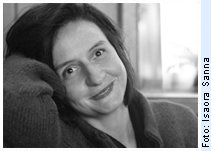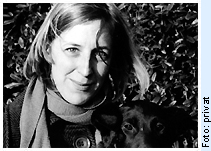World Poetry Day 2022 – May these be words of hope, faith and comfort
Einen Waffenstillstand, einen Waffenstillstand, nur um die
Absicht zu prüfen,
Es kann ja sein, daß ein Stück Frieden in die Seele sickert
Und wir mit Poesie um die Liebe der Dinge wetteifern.
Mahmud Darwisch, Belagerungszustand (original: ar, translation: de)
my mother red with laughter, my father cupping
his left hand under his armpit, doing the dance
of old Ukraine, the sound of his skin half drum,
half fart, the world at least a meadow,
the three of us whirling and singing, the three of us
screaming and falling, as if we were dying,
as if we could never stop – in 1945 –
Gerald Stern, The Dancing (original: en, translations: de, he)
I survived somehow, and now we have peace (…) again.
I have no idea what I will do next.
Sándor Tatár, „War and Peace”
(original: hu, translations: de, en, dk, is, he, fr, nl, ka, ro, it)
gesagtes und leiden stumm
in zwei worten genannt
in drei schmerzen gebannt
und lasst uns die herzen befreien
befreit das leiden
Tanella Boni, [parole et souffrance muettes] (original: fr, translation: de)
And this must be
a sort of peace:
a botanical secret
of light
Ana Luísa Amaral, Uma botânica da paz: visitação
(original: pt, translations: de, en)
Schmerz wirkt unterschiedlich
in verschiedenen Orten
Zum Beispiel
Ich habe nur Kopfschmerzen
Du hast verloren nur eine Hand
Er alles
Mustapha Samady, دردستان – Schmerzland (original: fa, translation: de)
Silbern ist der Wind, der zu jeder Stunde des Vergessens drei
zusätzliche Stunden des Vergessens hinzufügt, die sich immerfort
in der Gegenwart ereignen;
[…]
Silbern ist der Flug der Möwe, die das Gesagte und das Verschwiegene zusammennäht
und einen dauerhaften Waffenstillstand mit dem Läuten der Abendglocken stiftet
Uroš Zupan, Srebro (original: sl, translation: de)
after the war,
what do we do
with the guns
and the machetes?
Natalia Molebatsi, after the war
(original: en, translation: de)
Let someone say on your behalf
that those towers don’t tumble down
Nothing happens to them
Those people never end
Tushar Dhawal, Papa, look (original: hi, translations: en, de)
Meine Müh im Heer –
Eine Kreisumkehr.
Der Bruder mein
War verkehrt der Feind.
Olga Martynova, Tschwirik im Krieg (original: ru, translations: de, sr, sv)
und ich frage: wer ist dieser ruhm
und was macht er mit den herzen
er schenkt der sinnlosigkeit ringsum ein wenig sinn
als wäre doch nicht alles umsonst
Volha Hapeyeva, schwarzer apfelbaum (original: hi, translations: en, de)
The old butterfly flaps its slender wings through the smoky air
exhausted and breathless
he flies over the ashy battlefields
and lays his powdery, golden trail
on the wailing grounds
[…]
he breathes in all the unborn flowers
and he lives.
Ketty Nivyabandi, Hope (original: en, translation: de)
herr
laß uns das gespräch wieder aufnehmen
nach langem erzwungenem schweigen
nachdem du deine geschöpfe denaturiert hast
in auschwitz
in hiroshima
in halabtsche
in srebrenica
gehst du nun auf die knie vor den opfern?
und vor den tätern auch?
und glaubst du
daß wir die Versuchung zu einer noch radikaleren
liebe überstehen
ohne dein wort?
SAID, Psalmen (Auszug) (original: de, translations: en, fr)
Forgiveness
is to renounce voluntarily
the legitimate claim to vengeance.
Vergeben
ist freiwilliger Verzicht
auf das legitime Recht
der Rache.
Odile Arqué, Perdonar (original: ca, translation: de, en)
Ich hab Leben gewählt
mit dem ganzen Ballast
die Füße sind schwer
es versagt mir die Stimme
Ilana Shmueli, [Neige dich zu deinen Toten / Ich hab Leben gewählt]
(original: de, translations: ar, fr)
stilles leben, Stilleben; die farbwelt dieser kompositon wird von
mattgelb dominiert; die blutorangen in der kristallschale
erinnern an kriegsveteranen bei tagesanbruch im schwimmbad,
dessen panoramafenster voller spritzer und fingerabdrücke
sind: gefilterter unreiner morgenschein, altgold; die komposition
verewigt den frieden, den die welt geben kann
Risto Oikarinen, [hiljaiselo, Stilleben…] (original: fi, translations: de, sv)
World Poetry Day and an Open Call from Belgium
To celebrate World Poetry Day on March 21, Lyrikline publishes six fine new poets from around the world between March 19-21 (find all their names below).

Laurence Vielle
One of them is Wallonian poet Laurence Vielle, the first poet contributed by our new Wallonian network partner L’Arbre de Diane.
Laurence was the Belgian National Poet until Els Moors took over in January of 2018. Now Els Moors has started an open call in connection with World Poetry Day:
Adopt your city with a poem
On the 21st of March, World Poetry Day, the National Poet of Belgium, Els Moors, invites all people worldwide to gather their most beautiful odes and elegies on their cities (/ countries / states / …) and make them public. In times of gentrification, mass tourism and worldwide migration we are craving for lonely flâneurs and notorious wanderers who want to lay bare the mysterious heart of their cities. Are you still in love with the city you were born in? Were you pushed on by love, or obliged to leave your hearth and home? Adopt your city by writing an urban elegy and take part in the writing of the most exotic Lonely Planet at this time: The adopted cities.
Would you like to contribute to this special worldwide anthology, and motivate others to join?
Then join this action in a few steps:
1. Publish your own poem on our page starting the 21st of March 2018: www.adoptedcities.be
2. Post your poem on all your possible (social) media and encourage fellow citizens to adopt a city with a poem and to join the action. Everybody can share their city-poem on our website. On Facebook, please use #adoptedcities so we can follow and share your posts.
3. Enjoy an easily accessible and interactive online anthology, a playful way to motivate people to read and write poetry!

Els Moors
Read the poems of Els Moors, “Dichter des Vaderlands” of Belgium here. Read the city poem of her predecessor and ambassador Laurence Vielle here.
We would – very much – like people from all over the world to take just a minute to think about poetry (and all its modern interpretations) and to write even a short piece of poetry. Let’s make a tribute to poetry and to our world together!
We hope that many people out there follow Els Moors’ call to post poems. We’d also like to invite you to discover the other new voices that we published on the occasion of this year’s World Poetry Day, next to Laurence Vielle:
M. NourbeSe Philip (Tobago/Canada)
Sukrita Paul Kumar (India)
Benjamín Chávez (Bolivia)
Ketty Nivyabandi (Burundi/Canada) and
Yoko Tawada (Japan/Germany).
Happy World Poetry Day!



2 comments